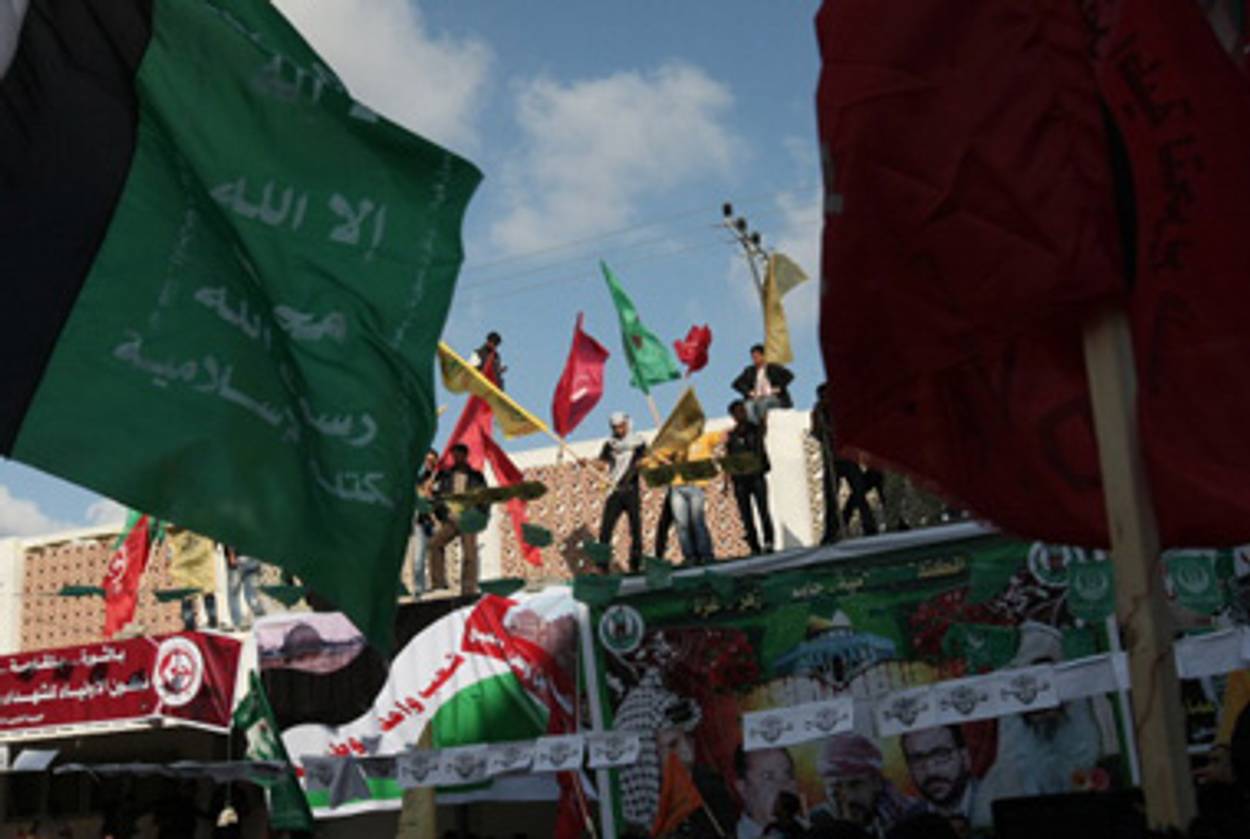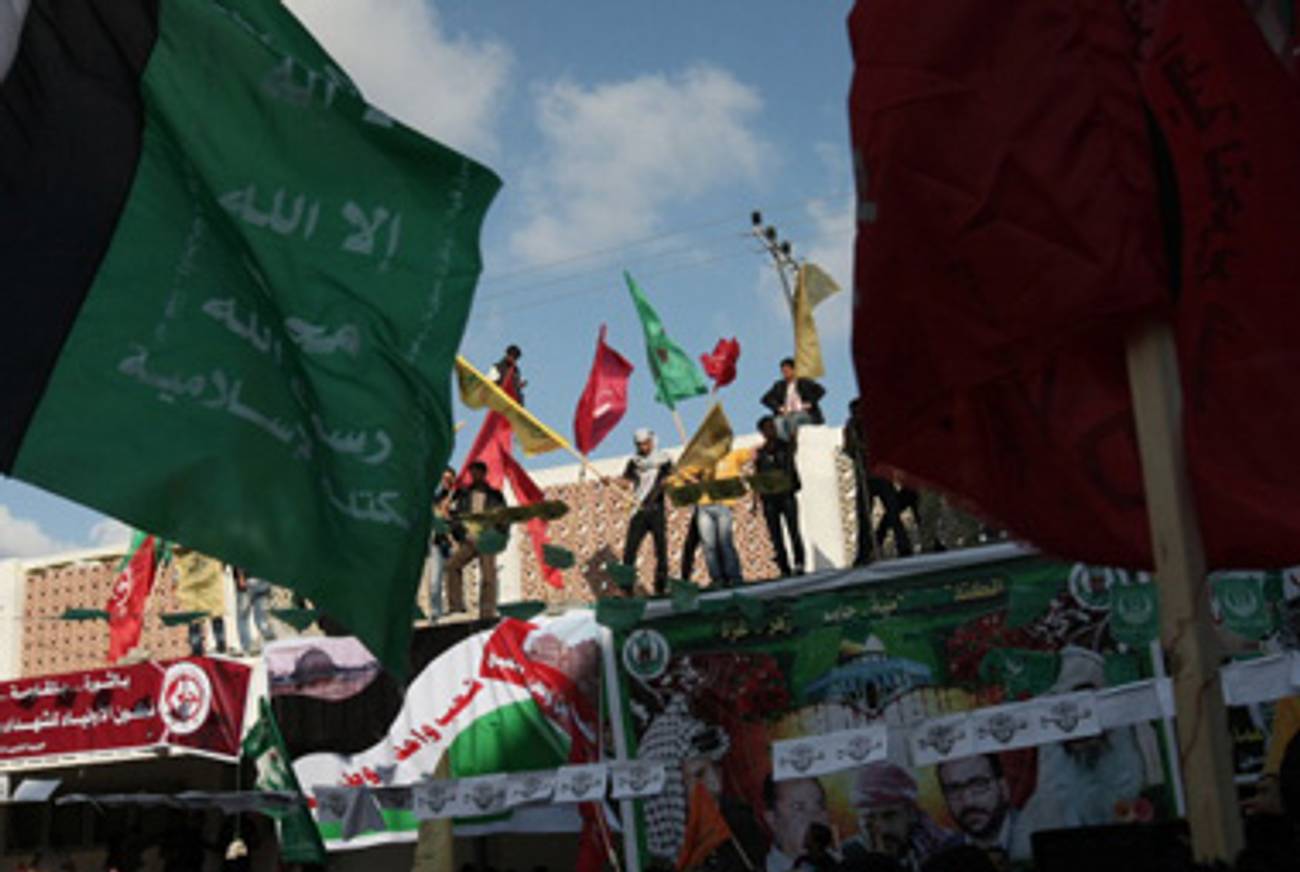U.S. and Israel Face Same Palestinian Question
After reconciliation with Hamas, can the P.A. be trusted with millions of dollars?




It’s been nearly two weeks since the Fatah-Hamas reconcilation deal was first agreed to, and still the most concrete correlative for Israeli response is the decision, so far, not to transfer some $90 million in tax revenue to the Palestinian Authority, under the theory that such money could, now, end up in Hamas’s hands. Secondarily, there is the question of whether the United States will continue to send more than half a billion dollars of aid to the P.A. It is not inconceivable that the U.S. administration will respond to these similar questions with contradictory answers.
Concerning the tax revenue—without which, according to Prime Minister Salam Fayyad, 150,000 P.A. employees will not be paid for the first time since 2007—the State Department criticized the Israeli decision as “premature.” Said a spokesperson, “We are looking to see what this reconciliation agreement looks like in practical terms, before we make any decisions about future assistance.” Which of course leads to the second question. On Sunday, P.A. President Mahmoud Abbas told a visiting delegation from the dovish American group J Street that it is crucial that the U.S. continue aid; he flatly denied “that Hamas will be in the West Bank, or that it will share any authority here,” adding, “The new government will comply with my policies, and I am against terror and violence.” Yet, also over the weekend, 29 Democratic senators—joining Republican colleagues—urged President Obama to withhold P.A. aid pending assurances that Hamas will not join the P.A. (as it will do if reconciliation is followed through upon). “The United States should stand by its refusal to work with any Palestinian government that includes Hamas,” their letter argued, and it cited Hamas’s criticism last week of the killing of Osama Bin Laden.
But even that is something of a more complex question: As I suggested at the time—and I don’t mean to sugarcoat Hamas, whose head, Khaled Meshal, said over the weekend, “Unfortunately, nonviolence doesn’t work against the Israelis”—part of the reason Hamas took the position it did on Bin Laden was to shore up what is, believe it or not, its even-more-jihadist flank. And indeed, on Saturday, Hamas police broke up a pro-Bin Laden rally run by Gaza Salafists (the same folks whom contributing editor Nathan Thrall warned about last week).
And you are seeing a lot of talk—from Meshal and from activist Mustafa Barghouti, who it turns out was fairly instrumental for getting the deal done in Cairo—that Hamas will make decisions in concert with its new partner, which would require committing to a two-state solution based on the 1967 lines and renouncing violence (policies that violate Hamas’s rightly infamous charter). If, as Israel’s strategic affairs minister Moshe Yaalon suggested, Hamas has not given up its ideology for good but has agreed to temporary compromise due to its own circumstantial weakness, now could be a good opportunity to hold Hamas to its word: Either Hamas will stick to its word, and there could be chance for real progress; or, at the very least, Hamas would betray its word, and the whole international community could see good faith on Israel’s part and bluffing on Hamas’s.
U.S.: Israel’s Decision to Withhold P.A. Funds ‘Premature’ [Haaretz]
Democrat Senators to Obama: Cut P.A. Aid [Ynet]
Abbas Urges Continuation of U.S. Aid Despite Agreement with Hamas [NYT]
Hamas Leader Nods to New Partners [WSJ]
An Insider’s View of the Palestinian Unity Deal [FP]
Earlier: Fatah Chooses Hamas
Diplomats’ Report: Deal Could Prove Useful
Marc Tracy is a staff writer at The New Republic, and was previously a staff writer at Tablet. He tweets @marcatracy.